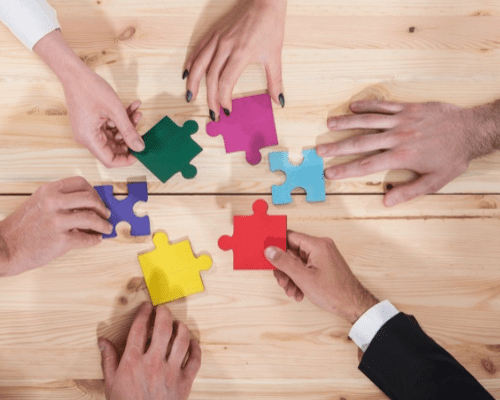Salesforce found that ‘83% of customers expect to interact with someone immediately when they contact a company.’
The fifth edition of the State of the Connected Customer Report, produced by our partners at Salesforce, provides insights into the new customer engagement landscape. Based on responses from nearly 17,000 consumers and business buyers, the report highlights the way in which events of recent years, including the global pandemic and the supply-chain crisis, have influenced the way in which customers interact with brands. Trends such as digital-first experiences, personalisation at scale, data privacy legislation and the rise of asynchronous channels have all contributed to this shift.
The Salesforce report is segmented into four chapters, and we here at redk are summarising the highlights from each chapter over four blog posts. This week, the fourth and final chapter:
‘Digital-First Experiences Expand to Meet the Moment’
Emerging Technologies and Services Become Mainstream
The COVID-19 pandemic changed the face of commerce – and many of those changes have become lasting trends. During the past two years, 68% of customers reported purchasing products in a new way – and the majority expect to continue using these purchasing channels.
‘61% of customers who shop via social media expect to do so even more in the next three years,’ Salesforce reports.
Mobile ordering and contactless payments are now used by over 80% of customers, and the use of ‘click and collect’ services has also risen – from 31% in 2020 to 60% in 2022. Today’s customers, especially those from younger age groups, want interactions with companies to be fast, easy and under their control.
Omni-channel Engagement: Here to Stay
Customers now use an average of nine different channels to communicate with companies, indicating growing acceptance of a wider range of options. However, there are signs of a shift towards the personal touch, with communication preferences moving away from email – previously the number one choice – and towards phone, in-person, and online chat platforms.
According to Salesforce, ‘78% of customers have used multiple channels to start and complete a transaction.’
Although uptake of these new channels has been rapid, customer expectations have increased accordingly. Over 80% of customers say they expect to resolve complex support queries by speaking to one person.
Great Expectations: Personalisation and Seamless Support
As customer needs increase, there is often a gap between the expectations and reality of interactions. While there’s been an increase in the use of self-service during the pandemic, a preference for using chatbots and account portals to resolve simple queries is mainly limited to younger age groups.
However, these high expectations are not always met. Poorly equipped agents, lengthy hold times, and lack of communication between departments can leave customers dissatisfied – 53% say most support interactions are fragmented, and only 13% say it takes ‘little effort’ to resolve support queries.
‘More than eight in ten customers expect to solve complex cases in a single transaction with a knowledgeable agent.’
This trend is also noticeable in B2B sales. 71% of business buyers report that most sales interactions feel purely transactional – and while 87% of them expect sales reps to act as trusted advisors, only 61% say they generally trust sales reps.
Drivers of Customer Loyalty: Consistency and Positive Experience
Attentive and knowledgeable human agents remain the key to customer satisfaction. 96% of customers say excellent customer service builds trust – and positive support experiences make customers more likely to return. In fact, over 80% of customers have recommended a company to others based on excellent customer support.
Customers also expect consistent interactions. However, 66% report that they often have to repeat or re-explain information to different representatives.
According to Salesforce, ‘83% of customers are more loyal to companies which provide consistency across departments.’
It’s clear that many organisations still have some way to go in meeting customer demands – with certain sectors lagging behind, notably in the governmental, non-profit and utilities sectors. In contrast, technology, consumer goods and healthcare are reported as providing the best experiences.
We at redk have over 15 years’ experience in digital transformation, providing the consulting expertise and digital capabilities to implement the technical solutions that work best for your company. Talk to us to find out how we can help support your customer engagement strategy and ensure customer trust and loyalty.











